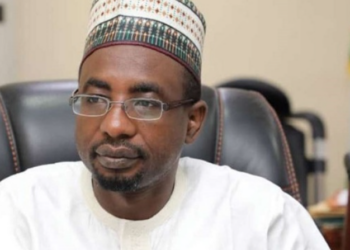While many governments and legacy financial institutions have generally been reluctant to embrace blockchain and cryptocurrencies in general, there have been a lot of innovation going on in this space.
Nigeria is particularly a special country when it comes to technological innovation, she often lags behind most countries.
We already have an idea of how blockchain can revolutionise finance & investing, we’ll explore some of the other sectors that can be disrupted by this innovative technology.
Healthcare
While the issues with healthcare in Nigeria has been extensively reported, a low hanging fruit that could be solved by blockchain is the access to medical records. Think of how many times you’ve had to go to a new hospital and gotten a wrong diagnosis, because the hospital wouldn’t do all the necessary tests, or have access to your medical records. It is a very well known fact that access to medical records helps with diagnosis. While electronic medical records could be kept, some patients have an issue with confidentiality. This can be solved with a private blockchain that allows all doctors and healthcare providers to access your health records securely and easily. Additionally, your health information could be accessed immediately, at any time, potentially offering doctors lifesaving information in an emergency.
Real Estate
One of the major issues that plague the real estate industry in Nigeria is the “Omo onile” problem.
The current process of obtaining land titles is full of so many bottlenecks and even after paying through your nose and spending all the time, you could still end up being duped, or harassed by the family of the former landowner, or just anybody who decides to take interest in it. All of these could probably be solved by blockchain. As with BVN, making it mandatory for all real estate in the country to be registered on a blockchain maintained by the government, would ensure that the transfer of ownership is seamless and secure. This would reduce land disputes, excessive costs of registrations and the time taken for the process. If done properly, we would have a case where a Nigerian in diaspora would be able to buy a piece of land without having to be physically present, or through a relative or friend.
Elections
It’s election season again in Nigeria and many are plagued with the same question. “Do our votes really count?”. There are hardly any elections held in Nigeria without dispute of the results, as the general public (including the contestants) don’t trust our electoral system.
I dare say that blockchain could enhance this process and increase reliability and security. Using blockchain technology, voting processes can improve everything from registration to vote counting. Best of all, the fact that blockchain’s distributed ledgers are publicly accessible and immutable means that it would increase transparency in the process.
Public Contracts
The issue of corruption in the award and execution of public contracts is a well-known issue in Nigeria. States like Lagos are known to notoriously have a very opaque contracting process. This can be disrupted using blockchain technology. From the bidding stage, smarts contracts can be developed to qualify some of the applicants at an early stage, other stages of the process to the award of the contract, the financials behind it and all the procurements that will occur during the contract can be recorded with proof on the blockchain. This will make the process transparent and trusted. With the use of blockchain, we can expect a more speedy and cheaper implementation with public contracts.
Insurance
One of the several reasons Nigerians don’t trust insurance is the difficulty of making claims. Insurance companies in Nigeria always seem like they have no intention to pay on claims made. Blockchain can also make this process easy. The first use case is Agro-insurance. Where the rainfall data, sunshine data and other conditions that are being universally recorded exists. A farmer can insure his yield against drought, such that a smart contract can preset the amount of rainfall that would be termed as good, if less, pay the farmer seamlessly.
Another use case is travel insurance. All international flights (Departure & arrival times) are recorded in real time. Where a passenger insures against lateness, once the smart contract detects lateness past the latest time, as per the insurance, the smart contract can instantly pay you without having to make a claim.
With the advent of IoT and Blockchain, we might soon be able to use smart contracts for Auto-Insurance.
Identity Management
This is another area in Nigeria that needs the intervention of blockchain. There are several reported cases of people with different dates of birth and names on different identity documents. It is also very difficult for people to get existing government identities. The advent of BVN (Bank Verification Number) has helped in some way, however, some gaps still remain as BVN as yet to take its place as the central source of truth for all identity management.
An identity management can be built on blockchain, such that every new infant can be registered from birth, with a record being stored, all subsequent information such as picture updates, biometric data or name change in the future can be further updated on the profile of that person. This can replace the existing systems, such that opening of bank accounts, registration for international passports, even voter registration and every other thing that requires identity could be done on the blockchain.
There are countless other sectors that could benefit from blockchain integration. What opportunity do you see for blockchain to disrupt and improve your industry?
This article is in partnership with Quidax. Quidax is a European based digital assets exchange with a focus on Africa. We provide a seamless platform for users to send, receive, buy and sell cryptocurrencies using their local currencies.























